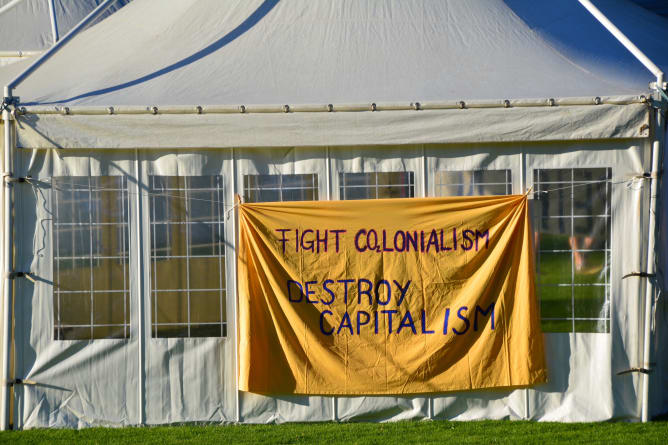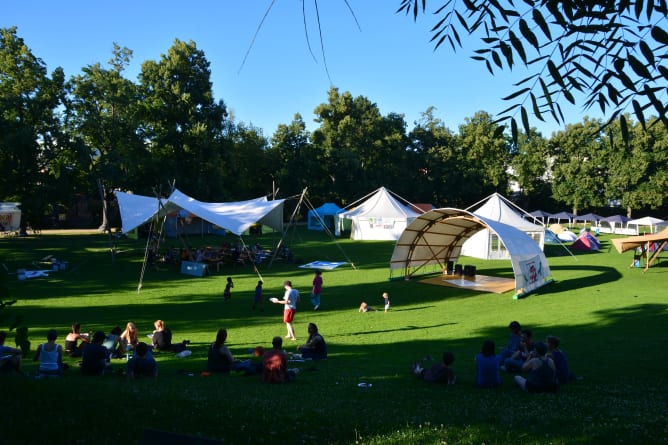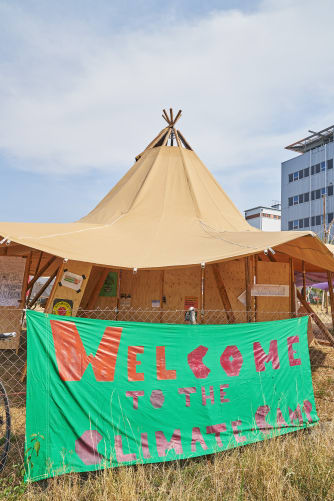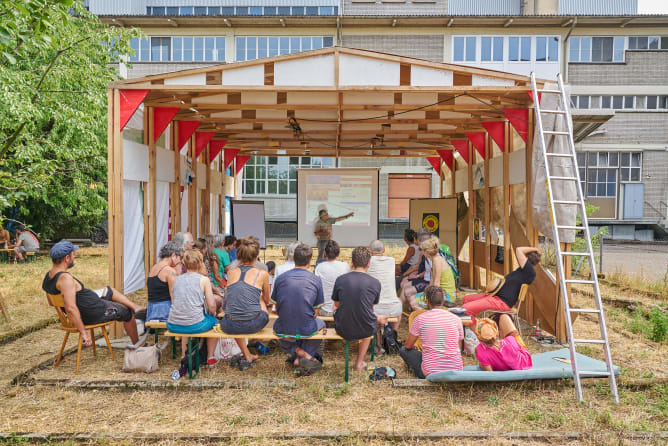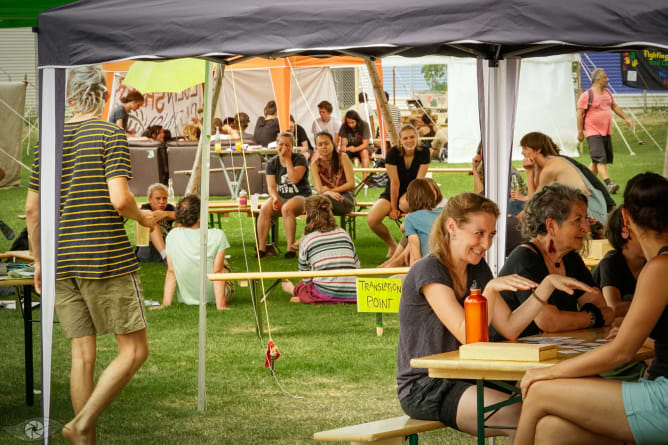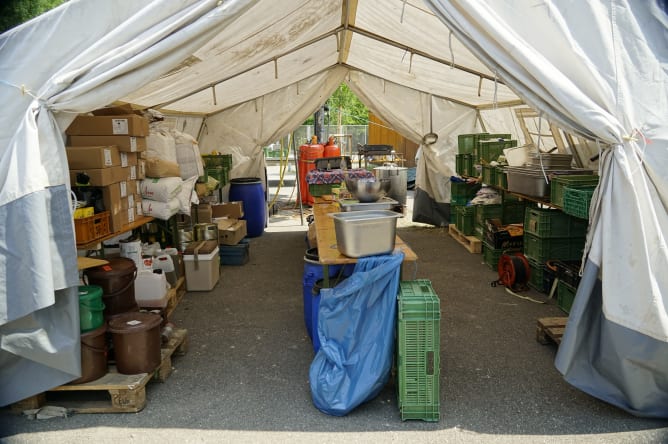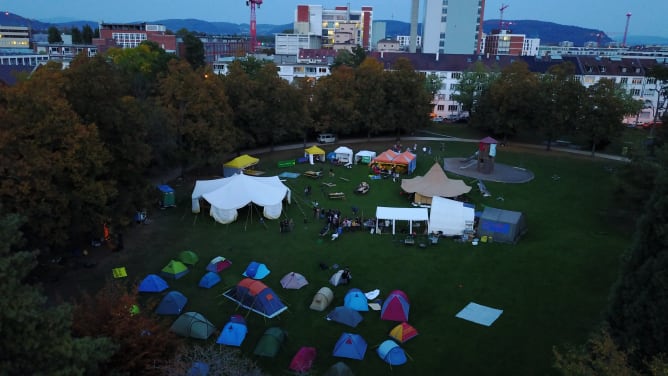Burn Borders Not Fossil Fuels!
The climate crisis is getting worse, and migration is already the only option to adapt to the consequences of the climate crisis in many places in the world. The climate crisis and migration are both based on profound injustices. Those who have contributed least to the climate crisis are already suffering the most. The main culprits of the climate crisis, like Switzerland, ignore their responsibilities and instead invest in the inhumane militarisation of borders and racist migration and asylum regimes. We want to counter the unjust systems that underlie both of those topics. A more just and solidary world is possible!
The NoBorders Climate Camp
During a week full of interesting workshops, lively discussions and colourful actions, the NoBorders Climate Camp tries to explore these connections and at the same time show that another world is possible. With the camp, we want to create a space to bring the climate justice movement closer together with people who are particularly affected by the climate crisis and a global movement that fights for freedom of movement. To overcome interconnected crises, cooperation is needed more than ever.
Why do we need support?
A climate camp involves all kinds of costs - material, food, infrastructure - but this year the costs will be even higher: Since we invite people to our camp to do workshops and decolonisation work with us, who are often also affected by migration and colonial structures themselves, we want to be able to pay them for their valuable work and reimburse costs such as travel expenses. We would also like to enable as many people as possible who are directly affected by a racist asylum system to participate in the camp. This also requires money, e.g. for public transport tickets. Finally, we try to make our camp as accessible as possible - this means for example that we offer translations into different languages, which means that there will be costs for translators and translation equipment.
